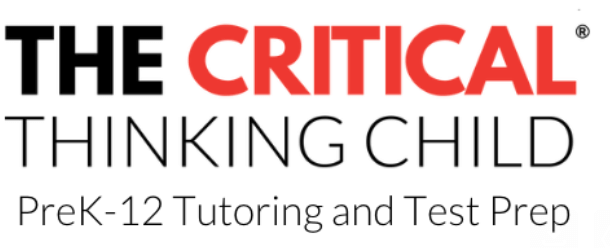The 7 Bad Habits of Extraordinary Parent
You strive to guide your child and give them all the tools they need to be successful in life. You work hard to keep lines of communication open between teachers and caregivers and to be your child’s biggest cheerleader. You’re a shoulder to cry on, a hand to hold, and a push out the door when needed.
You are an Extraordinary Parent.
As an Extraordinary Parent you’re dedicated, hard-working, and nourishing all at once. Your child’s success and happiness is your top priority, and you’ll do whatever it takes to help them on their journey.
You are guiding your child down a path full of challenges and rewards, and it’s only natural to want what is best for them. Sometimes, though, the ‘whatever it takes’ mentality may lead to unintentional habits that do more harm than good.
If you’re an Extraordinary Parent, that’s a wonderful thing—but there are seven habits you should be wary of forming.
Bad Habit #1: Unhealthy Competition Drives Away Success
Every child loves to be recognized, and with more opportunities for extra-curriculars and activities, competition is on the rise. Extraordinary Parents often jump at the chance for their child to “prove” themselves. While competition can be a good motivating factor, sometimes it takes an unexpected turn. Instead of children engaging in healthy competition, parents compete against parents to determine whose child is the “best”.
If you find yourself falling into a naturally competitive mindset, make an effort to keep the focus on the children. They should engage in competitions in a healthy, fun way, without the added pressure of competing parents.
Bad Habit #2: Expecting Too Much Too Soon
Extraordinary Parents don’t mind getting their hands dirty. They’re eager to help support their child’s academic pursuits in any way possible. Unfortunately, sometimes this eagerness to help morphs into impatience.
It’s only natural to want to see quick results from your (and your child’s) efforts. But part of the process is giving children time to think and inquire about their world. Allow them time to process new information and create their own solutions. For the Extraordinary Parent this often means tapping into patience and giving your child space to think
Bad Habit #3: Activity Overload
It can be tempting to expose your child to as much as possible. You want them to explore their talents and skills, and find their passions. Well-intentioned as this may be, when your child ends up with zero down time, rushing from activity to activity, it can become a recipe for burnout.
It’s important to introduce your child to new activities and interests, while also balancing their academic pursuits—and their need for relaxation and reflection. By making your child a part of the decision process and allowing them to choose a small handful of activities that interest them, you’ll prevent them from becoming overwhelmed.
Bad Habit #4: Treating Each Child the Same
Have you ever felt like you learn best when you’re listening to music or when you’re working with your hands? Adults learn differently, and so do children. It can be easy to forget that each child learns differently from each other—and from you. A “one size fits all” approach fails to recognize the individual gifts, talents, and skills of each child.
It’s important to support your child in a way that suits their needs. Address them separately and encourage them to problem-solve in the way most natural to them. This will help ease frustration and encourage success.
Bad Habit #5: Never Letting Go
Do you find yourself holding your child’s hand too tightly? The idea of giving your child extra responsibility can seem intimidating, but there is such a thing as too much support. Letting your child interact with their world on their own terms gives them a chance to practice critical thinking skills.
While it’s important (and natural) to support your child, sometimes the best way to do this is to hand over the responsibility. Slowly but surely, as your child grows, you can start to step back. Allow them to find the answers themselves and only defer to you as a last resort.
Bad Habit #6: Giving Answers Instead of Asking Questions
It can be tempting to provide your child with all or part of the answer to a particularly challenging question. This is often impatience rearing its ugly head again, and leads to your child depending on you for results. Instead of thinking through the problem themselves, they learn that you will eventually tell them what they need to know.
Instead of giving your child the answer they want, practice asking more questions. Guide them to think critically. Probing questions that don’t directly provide the answer will help your child learn to rely on their own thinking abilities.
Bad Habit #7: Controlling Instead of Collaborating
It can be hard when your child leaves home to spend more time in a structured school environment. You no longer have full control over their education, and the older they get the less control you seem to have. A natural response, then, is to cling to your child’s teachers and caregivers, telling them how to best support your child.
While this is often exactly what a teacher wants to know, it’s important to approach the relationship in a collaborative manner. Instead of asserting authority over the teacher and telling them what to do, work together to find the best possible solutions for your child. This collaborative effort can have a huge impact on your child’s success in the classroom.
Bad habits often come from a good place
You want what’s best for your child, and you’re dedicated to helping them succeed. Part of that dedication means acknowledging when you need to step back and shift tactics.
Understanding and avoiding these bad habits will help you set a firm foundation for your child’s success. Even better, you’ll be able to fully enjoy the process, watching them learn and grow and have fun doing so.
Every day your child explores their world is a testament to how extraordinary they truly are. And each day you spend encouraging their success you step into your own role as an Extraordinary Parent.



